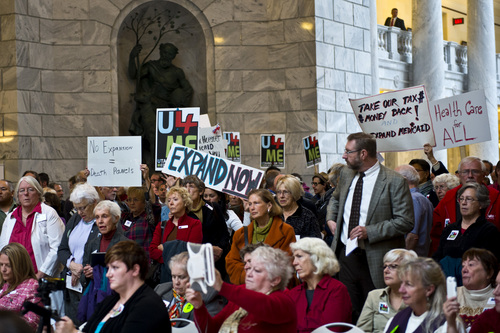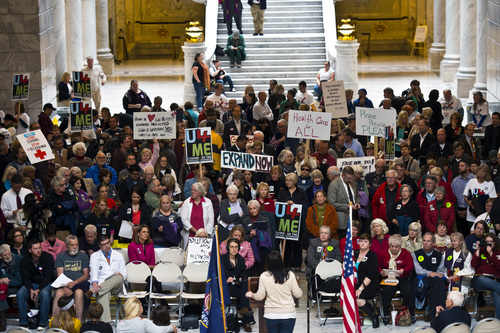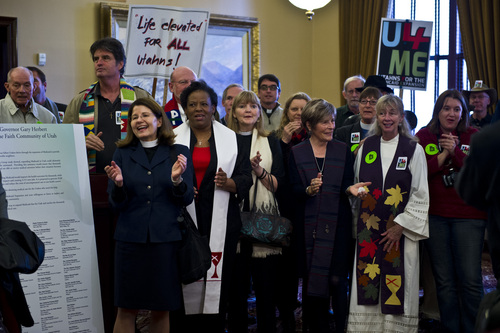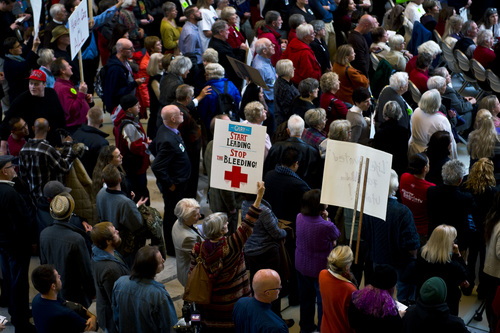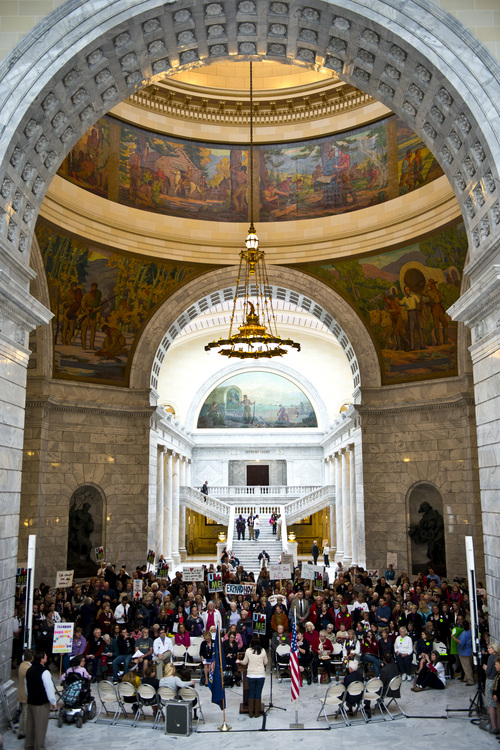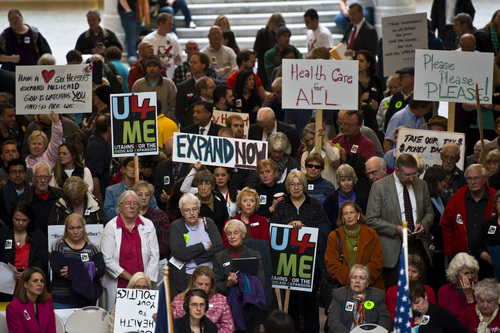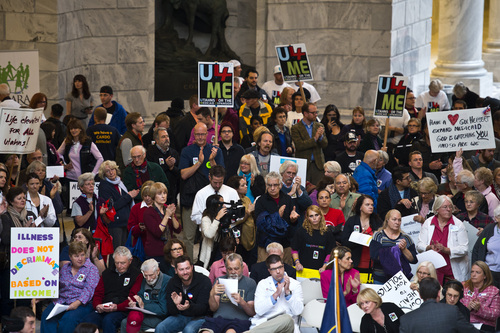This is an archived article that was published on sltrib.com in 2013, and information in the article may be outdated. It is provided only for personal research purposes and may not be reprinted.
The full expansion of Utah's Medicaid program as envisioned by the Affordable Care Act is off the table, under a list of options whittled from nine to three Thursday by lawmakers.
A full expansion is estimated to cover 150,000 Utahns earning up to 138 percent of the poverty level — about $32,000 for a family of four.
Instead, the Legislative Health System Reform Task Force will weigh just three scenarios before making a final recommendation to the full Utah Legislature:
• Do nothing and leave Utah's Medicaid eligibility rules as they are.
• Partially expand Medicaid to cover 91,000 Utahns earning up to 100 percent of the federal poverty level, leaving the rest to shop with federal subsidies on the federal exchange, healthcare.gov.
• Partially expand Medicaid, and use Medicaid dollars to subsidize private insurance for those between 101 and 138 percent of poverty.
Gov. Gary Herbert will make the final call. He has said he will decide next year, consulting with lawmakers. The original list of nine options was created by a workgroup he appointed.
Democrats tried reviving the full expansion, arguing partial expansions will cost taxpayers upwards of $65 million.
Analyses show a full expansion would reap $131 million for the state over the next 10 years, create jobs and reduce the charity-care burden on hospitals.
In states that opt for full expansion, the federal government will pay 100 percent of those costs through 2017. After that, states will pay a share, but the law caps those expenses at 10 percent of overall costs.
But Republicans have stood opposed, concerned about future costs.
They dispute cost estimates for partial expansions, which they say are open to negotiation with the Obama administration.
Steering low-income Utahns into the private insurance market is more cost-efficient, better for the market and better for consumers, they say.
Private plans pay health care professionals better than Medicaid, which doesn't fully cover providers' costs, said task force Chairman Rep. Jim Dunnigan, R-Taylorsville, an insurance broker. "It's nice to give them a Medicaid card, but we have a declining number of doctors willing to accept Medicaid. If they can't get into a doctor what have we done for them?"
Growing Medicaid would cripple the private market by pushing rates up higher, Dunnigan said. "When providers don't get paid enough to cover their costs, those costs just get shifted to the privately insured."
Partial expansions are a way to ease the cost shift, he said.
The task force's decision isn't final and its recommendations aren't binding. Anything could happen during the Legislative session that starts in January, acknowledged Jason Stevenson, communications director for the consumer group Utah Health Policy Project.
But in health care matters lawmakers tend to defer to the task force's leaders, making a full expansion unlikely, he said.
Utah faith leaders on Wednesday urged Herbert to expand Medicaid, via a full-page ad in The Salt Lake Tribune and the Deseret News.
"We respectfully ask that you lead us in finding the way to expand Medicaid that fits Utah and reaches the thousands of our neighbors who are in desperate need of medical care," the open letter concluded.
Supporters of an expansion also rallied at the Capitol on Wednesday, arguing it's the moral and fiscally responsible path. —
Expanding Medicaid
Under the ACA, most Americans must get health insurance by 2014 either through public programs or private insurance. The law gives states the option of expanding Medicaid eligibility to draw in more low-income citizens.


